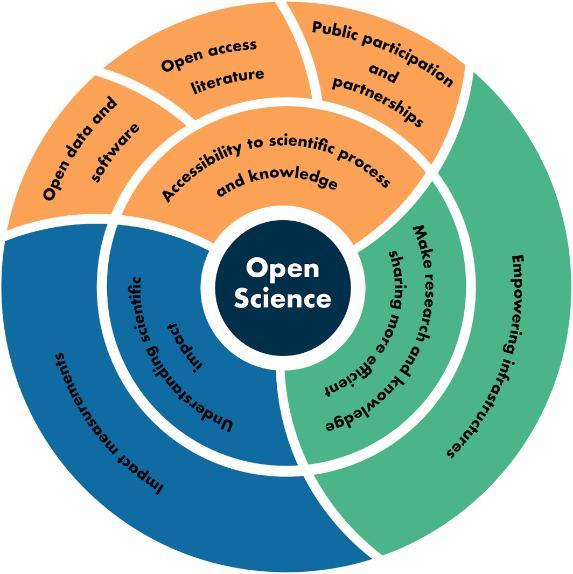
WIRE
The institutional repository for depositing research outputs
There’s still time to apply – Call us on 01902 968555! Find out more.
Open Research is “as open as possible and as closed as necessary” to allow research to reach a wider audience and have the widest possible impacts. It can cover all elements in the research lifecycle , from the initial research question, through to the data, to the publications that result from a research project. Open research connects to funder and national policies, such as UKRI policies and the REF.

Figure from , , & (2021). From open data to open science. Earth and Space Science, 8, e2020EA001562. https://doi.org/10.1029/2020EA001562, under a CC BY licence
Sharing the outputs from a research project can have a number of benefits, including increased exposure and reuse of your work, increased efficiency as research does not have to be duplicated, and more opportunities for networking and collaboration.
Read the University of Wolverhampton Open Research Statement to see how the university encourages open research practices.
There are an increasing number of processes that can provide routes to sharing different elements of the research lifecycle. These include pre-registration of studies, open access publications and data and open peer review.
While the University strongly encourages researchers to consider how they can engage with open research, it is acknowledged that there are reasons why a researcher may not be able to share data openly.
Also, you may wish to embargo access to parts of your research where funder policies permit.
If you have any queries around whether you can share and/or embargo data or other research outputs, please contact the Scholarly Communications Team
The following pages deal with open research issues in more depth.